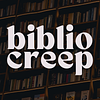Scan barcode
The Most Influential Sci-Fi Books of All Time (Book Riot, 2021) - NEW VERSION
33 participants (73 books)
Overview
What do we talk about when we talk about science fiction? Is it our hope for the future, or our fear of creating the very thing that will destroy us? If the most influential sci-fi books of all time are any indication, the answer is both.
Since the early 19th century, humanity has been fascinated by its own ability to move goalposts and demolish old boundaries in the dogged pursuit of progress. Our interpretation of that progress frequently shifts between cautious optimism and resignation toward our own doom, due to various social and political climate changes. But even at our most pessimistic, when we collectively felt as if we’d lost some great cosmic game, never, not once, have we ever stopped writing and reading new futures for ourselves. That’s a testament, not only to the staying power of sci-fi, but also to the tenacity of the human race.
The most influential sci-fi books of all time have shaped not just science fiction and its myriad sub-genres, but horror, fantasy, and manga, as well. Filmmakers have drawn inspiration for the stories between their covers, and real-world STEM developments have been made in their names. Without these books, for better or worse, our world would not be what it is today.
https://bookriot.com/the-most-influential-sci-fi-books-of-all-time
https://bookriot.com/the-most-influential-sci-fi-books-of-all-time
The Most Influential Sci-Fi Books of All Time (Book Riot, 2021) - NEW VERSION
33 participants (73 books)
Overview
What do we talk about when we talk about science fiction? Is it our hope for the future, or our fear of creating the very thing that will destroy us? If the most influential sci-fi books of all time are any indication, the answer is both.
Since the early 19th century, humanity has been fascinated by its own ability to move goalposts and demolish old boundaries in the dogged pursuit of progress. Our interpretation of that progress frequently shifts between cautious optimism and resignation toward our own doom, due to various social and political climate changes. But even at our most pessimistic, when we collectively felt as if we’d lost some great cosmic game, never, not once, have we ever stopped writing and reading new futures for ourselves. That’s a testament, not only to the staying power of sci-fi, but also to the tenacity of the human race.
The most influential sci-fi books of all time have shaped not just science fiction and its myriad sub-genres, but horror, fantasy, and manga, as well. Filmmakers have drawn inspiration for the stories between their covers, and real-world STEM developments have been made in their names. Without these books, for better or worse, our world would not be what it is today.
https://bookriot.com/the-most-influential-sci-fi-books-of-all-time
https://bookriot.com/the-most-influential-sci-fi-books-of-all-time
Challenge Books
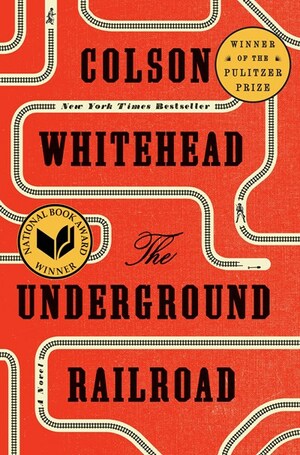
The Underground Railroad
Colson Whitehead
The rare sci-fi writer whose work is enjoyed widely by both mainstream and literary fiction readers, Colson Whitehead has put out a number of celebration-worthy speculative novels, including the zombified Zone One and the deeply atmospheric The Intuitionist. But it’s his first Pulitzer Prize-winner, Underground Railroad, that earns a spot on this list for its role in renewing readers’ interest in alternate-history novels.
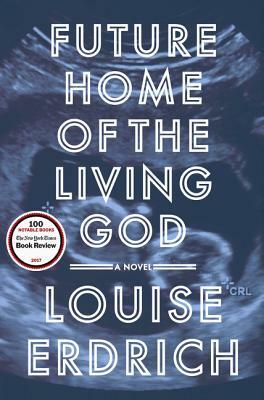
Future Home of the Living God
Louise Erdrich
The Round House author Louise Erdrich’s Future Home of the Living God combines the anxieties of The Handmaid’s Tale and Children of Men into a modern-day classic. Here, people have begun to give birth to lesser-evolved hominids, and an Ojibwe woman adopted by white parents must dodge dystopian forms of government interference when she finds herself pregnant with a Homo sapien. Erdrich’s novel is absolutely masterful, and a sign of what’s to come in pregnancy-anxious sci-fi.
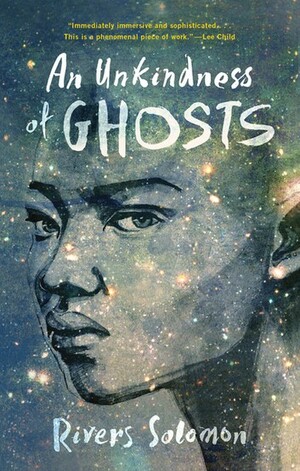
An Unkindness of Ghosts
Rivers Solomon
Have we talked about generation ships yet — those massive, slow-moving vessels whose crews birth and raise their successors? Generation ships have become a staple in contemporary sci-fi, and Rivers Solomon uses the trope to explore the last 200 years of real-life American race-relations in An Unkindness of Ghosts. Bearing some similarities to Snowpiercer, Unkindness follows Solomon’s heroine as she investigates the grim realities of her world.
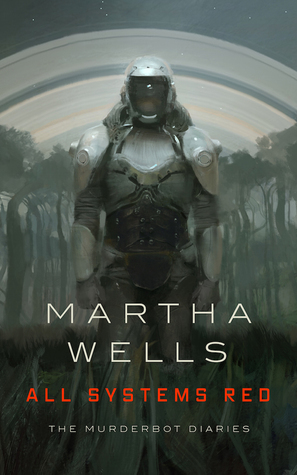
All Systems Red
Martha Wells
In today’s sci-fi landscape, nobody’s doing robots or speculative mysteries like Martha Wells. Wells’s Murderbot Diaries series follows the eponymous security robot — a self-aware unit who pretends to be like a normal, human-controlled android to avoid reprogramming — as its efforts to watch its favorite soap operas in peace are continually interrupted by murder mysteries only it can solve. When the next generation of robot novels hits, they’re sure to bear more similarities to Wells than Asimov.
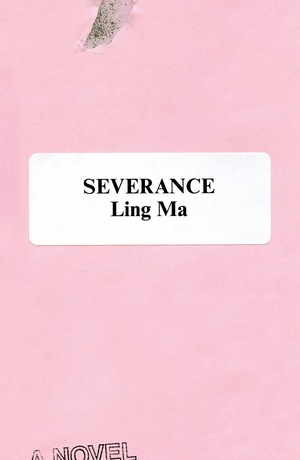
Severance
Ling Ma
Millennials have been publishing books for a while now, but all of our economic and existential angst is only just starting to appear in print. Chief among these examinations of our generation’s unique issues is Ling Ma’s Severance. A post-apocalyptic zombie novel that doubles as a send-up of millennial work culture, this Kirkus Prize-winning debut marks the beginning of millennial writers getting real about the things we — usually — only talk about in therapy.
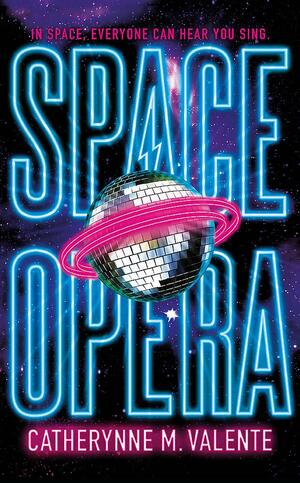
Space Opera
Catherynne M. Valente
SFF writer Catherynne M. Valente brings Douglas Adams’s humor into the modern day with this novel, which asks, “What if Earth competed in an intergalactic version of Eurovision?” Space Opera is funny. It’s imaginative. It’s hella queer. And it’s a sign of what’s to come in the sci-fi comedy niche.
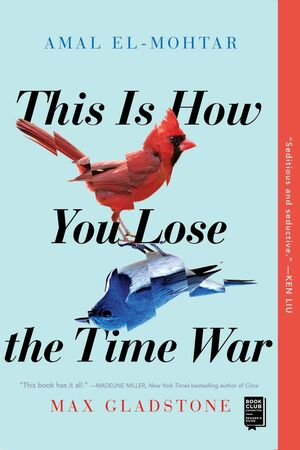
This Is How You Lose the Time War
Max Gladstone, Amal El-Mohtar
An epistolary love story about two time-traveling agents on opposite sides of a timeline-hopping battlefield? How could this not be one of the most influential sci-fi books for up-and-coming writers? In this novella — which won the British Science Fiction Association, Hugo, IGNYTE, Locus, and Nebula Awards — authors Amal El-Mohtar and Max Gladstone bring to the sci-fi genre all the charm and tenderness of a coffee-shop romance novel.
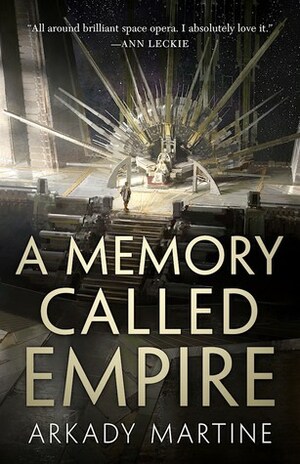
A Memory Called Empire
Arkady Martine
As a certified Dune stan, I’m always hesitant to compare novels to Herbert’s sci-fi epic, no matter how sweeping. With that being said, I’ve got no qualms whatsoever with saying that Arkady Martine’s A Memory Called Empire is as expansive, mysterious, and intricately webbed as Dune. This Hugo Award winner blends court intrigue, space opera, and murder mystery to create something completely fresh and totally exhilarating.
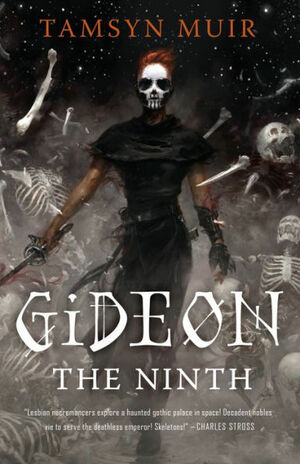
Gideon the Ninth
Tamsyn Muir
Speaking of murder mysteries, can we talk about Gideon the Ninth? The allure of Tamsyn Muir’s breakout success is relatively simple: You come for the lesbian necromancers in space, and you stay for the Agatha Christie-esque whodunit. And did I mention this novel is an unapologetic love letter to “trash lesbians” everywhere? Gideon is queering sci-fi the way Samantha Shannon’s The Priory of the Orange Tree is queering fantasy, and readers can’t get enough.
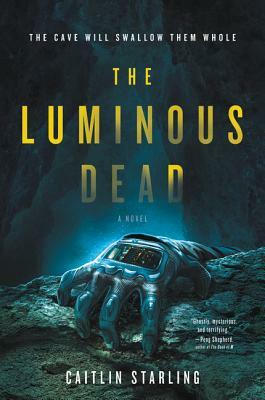
The Luminous Dead
Caitlin Starling
What happens if you mix Jeff VanderMeer’s Annihilation with The Descent? You get Caitlin Starling’s debut sci-fi horror novel, that’s what. The Luminous Dead is a horrifying vision of asteroid mining, one in which people take on cybernetic enhancements just to get a job that may very well kill them. It’s totally eerie, and, as one of the most popular sci-fi horror titles to come out in recent years, it’s sure to be a foundational text for new writers interested in the genre.
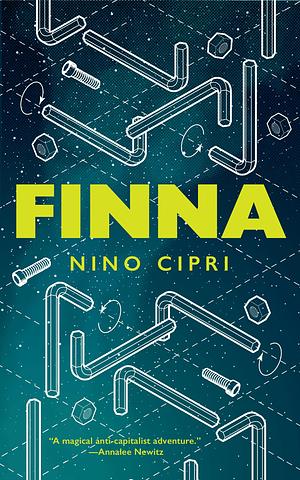
Finna
Nino Cipri
Horrorstör. The Very Nice Box. Finna. There’s something about IKEA that piques writers’ attention. Nino Cipri’s novella imagines an IKEA-like store that spontaneously connects to sister sites across parallel dimensions, with some catastrophic results. Whether it’s the queer, nonbinary romance at the heart of Finna, the dimension-hopping adventure, or the Swedish furniture, there’s something in Cipri’s book that grabs you like an interdimensional tentacle and never lets go.
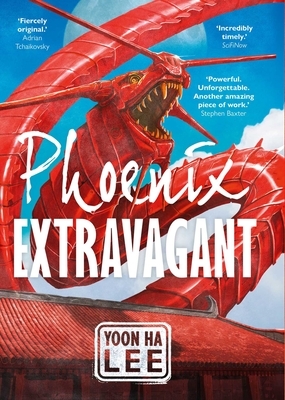
Phoenix Extravagant
Yoon Ha Lee
Given the way that publishing timelines work, it’s virtually impossible for Phoenix Extravagant to have influenced Zoe Hana Mikuta’s Gearbreakers or Xiran Jay Zhao’s Iron Widow. That doesn’t mean that Yoon Ha Lee’s 2020 novel won’t be the first in a mecha renaissance, however. Between those three books and the long-awaited arrival of Evangelion on Netflix? I’m calling it now.
